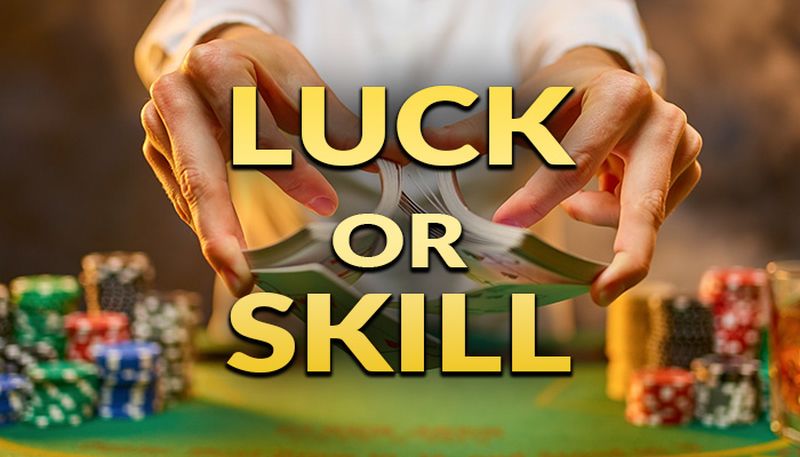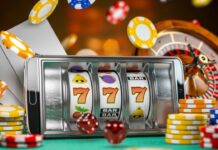What makes someone a successful gambler? Some say it’s luck. Others point to skill, strategy, and experience. But the truth lives in the middle. Not all games work the same way, and not all outcomes can be influenced. To play smart, you need to know which games reward knowledge—and which ones just spin the wheel.
Key Highlights
- Every gambling game favors either randomness or strategy—but never both equally.
- Short-term wins often come from luck, while long-term consistency reflects skill.
- Most casino platforms blend pure chance games with decision-based formats.
- Knowing your game helps avoid the illusion of control and financial risk.
- Even skillful play can’t beat house edge without proper risk management.
Where It All Begins: Defining the Core Difference
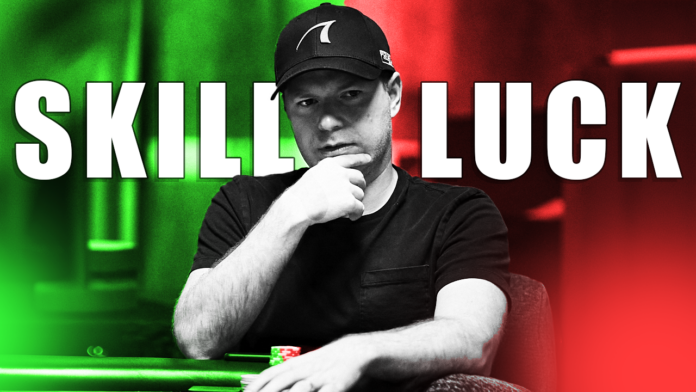
You can’t talk about outcomes without knowing what drives them. In gambling, chance and skill represent two very different forces.
Luck plays its role in games like roulette, slot machines, and lotteries. There’s no way to change your odds, no matter how often you play. Results are random by design.
Skill influences results in games like poker, blackjack, and sports betting. Player decisions shift the outcome—over time, smart strategies can beat bad ones.
Knowing which kind of game you’re in prevents emotional decisions. It also saves you from wasting energy on tactics that don’t matter.
A Look at the Spectrum — It’s Not Always Black and White
Most games don’t fall neatly into one box. Instead, they exist on a scale.
Let’s break that down without turning it into another list.
Take blackjack, for example. It feels like a card game governed by luck, but the player has control. Whether to hit, stand, or double down can shift odds slightly in your favor. Over hundreds of hands, this small edge matters.
Now think about craps. Your roll is luck, but the way you bet and manage risk introduces skill. The game rewards pattern recognition and smart timing.
Then you have poker, where decision-making is the entire game. Knowing when to fold, how to bluff, and when to go all-in comes with experience.
On the far other end? Slots. No buttons, symbols, or choices you make affect the final result. It’s 100% programmed randomness.
When Short-Term Luck Masks the Truth
Many players confuse early wins with being “good” at a game. That’s the trap.
Luck creates spikes—highs that feel like progress, but often crash fast. Someone who hits a jackpot or wins three hands in a row might think they’ve figured something out. They haven’t.
In the short run, a beginner can beat an expert. The problem is consistency. Over time, the expert’s edge always catches up.
If you’re on a streak, pause before increasing your bets. It’s probably variance, not mastery.
What Skill Looks Like Over Time
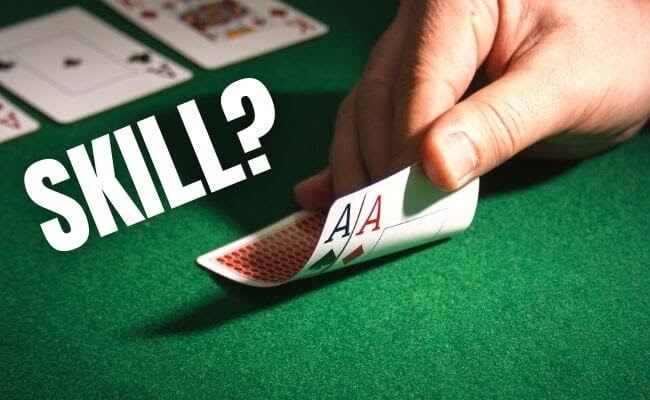
Skill doesn’t mean winning every time. It means minimizing losses and maximizing smart opportunities.
This includes:
- Learning game rules inside out.
- Adjusting strategy based on changing conditions.
- Managing your bankroll like it’s a business budget.
- Recognizing when to walk away—even after wins.
Over time, skill reveals itself in the numbers. A poker player with positive ROI after thousands of hands proves their edge. A sports bettor who consistently beats the closing line shows insight and discipline.
Online Play: Where Luck and Strategy Collide
Platforms like gg bet now give players the choice between both game types. You’ll find quick games built around luck—slots, virtual roulette, and crash games. But you’ll also find structured betting formats, where informed picks can outperform blind guesses.
This shift changes how players engage. You don’t have to guess every time. You can invest in learning and play formats that reward deep thinking.
The more you treat betting like a skill-based pursuit, the less it feels like random gambling—and the better your long-term position becomes.
How Casinos Tilt the Odds Regardless
Even in skill-driven games, the house still wins unless you play with precision.
Blackjack, for instance, has a small house edge when played perfectly. Deviate from the basic strategy, and that edge increases. Poker rooms take a rake. Sportsbooks build profit into their odds.
So, even if you’re skilled, the rules are built to limit your upside unless you play exceptionally well.
What does this mean for players?
- Don’t assume a win equals mastery.
- Don’t assume knowledge removes risk.
- Do build strategies that factor in loss and volatility.
The system is designed to reward controlled, informed play—not reckless chasing.
When Players Think They’re in Control (But Aren’t)
There’s a dangerous psychological effect in gambling: the illusion of control. This happens when players believe they can influence outcomes in chance-based games.
Examples include:
- Tapping a slot machine after a near-miss
- Believing a roulette number is “due”
- Changing scratch card types to beat a bad streak
None of these tactics change anything. But they feel like action. That illusion can spiral into more aggressive bets and higher losses.
Knowing the game’s mechanics helps. Learn where decisions matter. Stop where they don’t.
Can You Learn Skill? Yes. But It Takes More Than Playing
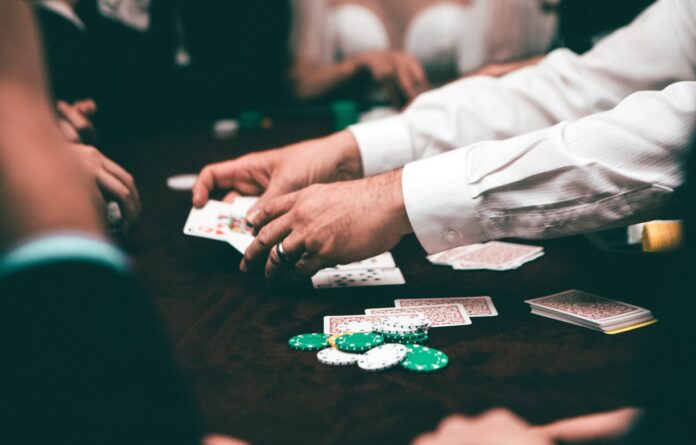
Skill is teachable, but only with effort.
You don’t become good at poker by sitting at the table for years without studying. You need coaching, analysis, tracking tools, and honest self-review.
Same for sports betting. Watching games isn’t enough. You need models, data trends, and risk management. You need to know when public hype inflates odds—and when to pass.
Want to turn casual play into a serious edge? Study like it’s your job. Practice with purpose. Reflect on mistakes. That’s how skill grows.
Final Notes – Know What You’re Playing For
Luck adds thrill. Skill adds depth. Together, they create the heartbeat of gambling.
But every player needs to ask:
- Am I here to relax or to win over time?
- Am I playing a game that rewards what I’ve learned—or just chasing randomness?
Smart gambling starts before the bet. It starts when you choose your game. If you choose well, you won’t just enjoy the highs—you’ll understand them.

